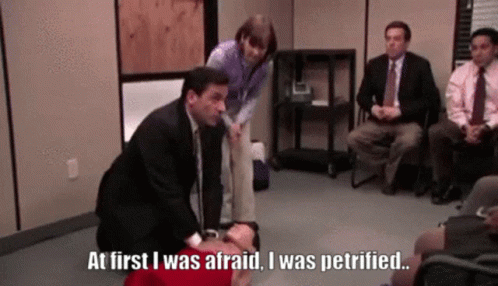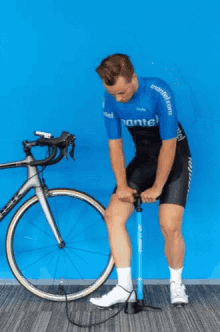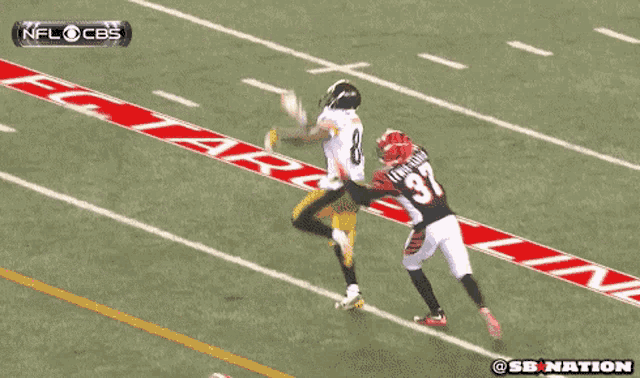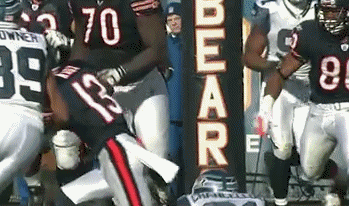
BILLS vs BENGALS in game thread!
Collapse
X
-
JIBBBYSBR Aristocracy
- 12-10-09
- 83686
#561 Comment
Comment -
masrSBR MVP
- 10-20-07
- 4773
#562Thats why the non "J" innated will live like we always have lived, enjoying what life has to offer and the "J" innated will walk around the rest of their lives wondering if them or their children are going to drop dead any minute.I never stop hearing about how many of the "J"-innated want to lock up and put the non-"J"-innated into concentration camps (also known as the pure-bloods). However, the pure-bloods never suggest putting the "J"-innated into camps. Seems like one side has more humanity than the other.
How the tide has turned...Comment -
 19th HoleSBR Posting Legend
19th HoleSBR Posting Legend- 03-22-09
- 18952
#563Duplicate post.
I was on 2 different devices.Comment -
 19th HoleSBR Posting Legend
19th HoleSBR Posting Legend- 03-22-09
- 18952
#564<br>your post was right on.<br>
<br>
i recently became certified in CPR and AED since i coach my kids in baseball, softball and soccer and also i am the only one on my work certified on the same. <br>
<br>
certification is every 2 years.<br>
<br>
30/2 rule for compressions / breaths<br>
<br>
<br>
<font color="#111111"><span style="font-family: Helvetica">Learn the steps to perform this lifesaving technique on adults and children.<br>
<a href="https://www.mayoclinic.org/about-this-site/meet-our-medical-editors" target="_blank" rel="nofollow">By Mayo Clinic Staff</a></span></font><br>
<br>
<font color="#111111"><span style="font-family: Helvetica">Cardiopulmonary resuscitation (CPR) is a lifesaving technique that's useful in many emergencies, such as a heart attack or near drowning, in which someone's breathing or heartbeat has stopped. The American Heart Association recommends starting CPR with hard and fast chest compressions. This hands-only CPR recommendation applies to both untrained bystanders and first responders.</span></font><br>
<br>
<font color="#111111"><span style="font-family: Helvetica">If you're afraid to do CPR or unsure how to perform CPR correctly, know that it's always better to try than to do nothing at all. The difference between doing something and doing nothing could be someone's life.</span></font><br>
<font color="#111111"><span style="font-family: Helvetica">Here's advice from the American Heart Association:</span></font><br>
<ul><li style=""><strong>Untrained.</strong> If you're not trained in CPR or worried about giving rescue breaths, then provide hands-only CPR. That means uninterrupted chest compressions of 100 to 120 a minute until paramedics arrive (described in more detail below). You don't need to try rescue breathing.</li>
<li style=""><strong>Trained and ready to go.</strong> If you're well-trained and confident in your ability, check to see if there is a pulse and breathing. If there is no pulse or breathing within 10 seconds, begin chest compressions. Start CPR with 30 chest compressions before giving two rescue breaths.</li>
<li style=""><strong>Trained but rusty.</strong> If you've previously received CPR training but you're not confident in your abilities, then just do chest compressions at a rate of 100 to 120 a minute (details described below).</li>
</ul><font color="#111111"><span style="font-family: Helvetica">The above advice applies to situations in which adults, children and infants need CPR, but not newborns (infants up to 4 weeks old).</span></font><br>
<font color="#111111"><span style="font-family: Helvetica">CPR can keep oxygen-rich blood flowing to the brain and other organs until emergency medical treatment can restore a typical heart rhythm. When the heart stops, the body no longer gets oxygen-rich blood. The lack of oxygen-rich blood can cause brain damage in only a few minutes.</span></font><br>
<font color="#111111"><span style="font-family: Helvetica">If you are untrained and have immediate access to a phone, call 911 or your local emergency number before beginning CPR. The dispatcher can instruct you in the proper procedures until help arrives. To learn CPR properly, take an accredited first-aid training course, including CPR and how to use an automated external defibrillator (AED).</span></font><br>
<strong>Before you begin</strong><br><br><br>
<font color="#111111"><span style="font-family: Helvetica">Before starting CPR, check:</span></font><br>
<ul><li style="">Is the environment safe for the person?</li>
<li style="">Is the person conscious or unconscious?</li>
<li style="">If the person appears unconscious, tap or shake his or her shoulder and ask loudly, "Are you OK?"</li>
<li style="">If the person doesn't respond and you're with another person who can help, have one person call 911 or the local emergency number and get the AED, if one is available. Have the other person begin CPR.</li>
<li style="">If you are alone and have immediate access to a telephone, call 911 or your local emergency number before beginning CPR. Get the AED if one is available.</li>
<li style="">As soon as an AED is available, deliver one shock if instructed by the device, then begin CPR.</li>
</ul><br>
<strong>Remember to spell C-A-B</strong><br><br><font color="#111111"><span style="font-family: Helvetica"><img src="https://www.mayoclinic.org/-/media/kcms/gbs/patient-consumer/images/2018/02/13/21/50/cpr-chest-compressions-illustration-8col-3678934-3c.jpg" border="0" alt="">Open pop-up dialog boxChest compressions<br>
<br>
</span></font><br>
<font color="#111111"><span style="font-family: Helvetica"><img src="https://www.mayoclinic.org/-/media/kcms/gbs/patient-consumer/images/2018/02/13/21/50/cpr-tilt-head-illustration-8col-3678934-2a.jpg" border="0" alt="">Open pop-up dialog boxOpen the airway<br>
</span></font><br>
<font color="#111111"><span style="font-family: Helvetica"><img src="https://www.mayoclinic.org/-/media/kcms/gbs/patient-consumer/images/2018/02/13/21/50/cpr-breathes-illustration-8col-3678934-3c.jpg" border="0" alt="">Open pop-up dialog boxRescue breathing<br>
</span></font><br>
<font color="#111111"><span style="font-family: Helvetica">The American Heart Association uses the letters C-A-B to help people remember the order to perform the steps of CPR.</span></font><br>
<ul><li style=""><strong>C:</strong> compressions</li>
<li style=""><strong>A:</strong> airway</li>
<li style=""><strong>B:</strong> breathing</li>
</ul><br>
<strong>Compressions: Restore blood flow</strong><br><br><font color="#111111"><span style="font-family: Helvetica">Compressions means you'll use your hands to push down hard and fast in a specific way on the person's chest. Compressions are the most important step in CPR. Follow these steps for performing CPR compressions:</span></font><br>
<ol class="decimal"><li style="">Put the person on his or her back on a firm surface.</li>
<li style="">Kneel next to the person's neck and shoulders.</li>
<li style="">Place the lower palm (heel) of your hand over the center of the person's chest, between the nipples.</li>
<li style="">Place your other hand on top of the first hand. Keep your elbows straight and position your shoulders directly above your hands.</li>
<li style="">Push straight down on (compress) the chest at least 2 inches (5 centimeters) but no more than 2.4 inches (6 centimeters). Use your entire body weight (not just your arms) when doing compressions.</li>
<li style="">Push hard at a rate of 100 to 120 compressions a minute. The American Heart Association suggests performing compressions to the beat of the song "Stayin' Alive." Allow the chest to spring back (recoil) after each push.</li>
<li style="">If you haven't been trained in CPR, continue chest compressions until there are signs of movement or until emergency medical personnel take over. If you have been trained in CPR, go on to opening the airway and rescue breathing.</li>
</ol><strong>Airway: Open the airway</strong><br><br><font color="#111111"><span style="font-family: Helvetica">If you're trained in CPR and you've performed 30 chest compressions, open the person's airway using the head-tilt, chin-lift maneuver. Put your palm on the person's forehead and gently tilt the head back. Then with the other hand, gently lift the chin forward to open the airway.</span></font><br>
<strong>Breathing: Breathe for the person</strong><br><br><font color="#111111"><span style="font-family: Helvetica">Rescue breathing can be mouth-to-mouth breathing or mouth-to-nose breathing if the mouth is seriously injured or can't be opened. Current recommendations suggest performing rescue breathing using a bag-mask device with a high-efficiency particulate air (HEPA) filter.</span></font><br>
<ol class="decimal"><li style="">After opening the airway (using the head-tilt, chin-lift maneuver), pinch the nostrils shut for mouth-to-mouth breathing and cover the person's mouth with yours, making a seal.</li>
<li style="">Prepare to give two rescue breaths. Give the first rescue breath — lasting one second — and watch to see if the chest rises.</li>
<li style="">If the chest rises, give a second breath.</li>
<li style="">If the chest doesn't rise, repeat the head-tilt, chin-lift maneuver and then give a second breath. Thirty chest compressions followed by two rescue breaths is considered one cycle. Be careful not to provide too many breaths or to breathe with too much force.</li>
<li style="">Resume chest compressions to restore blood flow.</li>
<li style="">As soon as an automated external defibrillator (AED) is available, apply it and follow the prompts. Give one shock, then resume chest compressions for two more minutes before giving a second shock. If you're not trained to use an AED, a 911 operator or another emergency medical operator may be able to give you instructions. If an AED isn't available, go to step 5 below.</li>
<li style="">Continue CPR until there are signs of movement or emergency medical personnel take over.</li>
</ol><strong>To perform CPR on a child</strong><br><br><br>
<font color="#111111"><span style="font-family: Helvetica">The procedure for giving CPR to a child age 1 through puberty is essentially the same as that for an adult — follow the C-A-B steps. The American Heart Association says you should not delay CPR and offers this advice on how to perform CPR on a child:</span></font><br>
<br>
<strong>Compressions: Restore blood flow</strong><br><br><font color="#111111"><span style="font-family: Helvetica">If you are alone and didn't see the child collapse, start chest compressions for about two minutes. Then quickly call 911 or your local emergency number and get the AED if one is available.</span></font><br>
<font color="#111111"><span style="font-family: Helvetica">If you're alone and you did see the child collapse, call 911 or your local emergency number first. Then get the AED, if available, and start CPR. If another person is with you, have that person call for help and get the AED while you start CPR.</span></font><br>
<ol class="decimal"><li style="">Place the child on his or her back on a firm surface.</li>
<li style="">Kneel next to the child's neck and shoulders.</li>
<li style="">Place two hands (or only one hand if the child is very small) on the lower half of the child's breastbone (sternum).</li>
<li style="">Using the heel of one or both hands, press straight down on (compress) the chest about 2 inches (approximately 5 centimeters) but not greater than 2.4 inches (approximately 6 centimeters). Push hard and fast — 100 to 120 compressions a minute.</li>
<li style="">If you haven't been trained in CPR, continue chest compressions until the child moves or until emergency medical personnel take over. If you have been trained in CPR, open the airway and start rescue breathing.</li>
</ol><strong>Airway: Open the airway</strong><br><br><font color="#111111"><span style="font-family: Helvetica">If you're trained in CPR and you've performed 30 chest compressions, open the child's airway using the head-tilt, chin-lift maneuver.</span></font><br>
<ul><li style="">Place your palm on the child's forehead and gently tilt his or her head back.</li>
<li style="">With the other hand, gently lift the chin forward to open the airway.</li>
</ul><strong>Breathing: Breathe for the child</strong><br><br><font color="#111111"><span style="font-family: Helvetica">Follow these steps for mouth-to-mouth breathing for a child.</span></font><br>
<ol class="decimal"><li style="">After using the head-tilt, chin-lift maneuver to open the airway, pinch the child's nostrils shut. Cover the child's mouth with yours, making a seal.</li>
<li style="">Breathe into the child's mouth for one second and watch to see if the chest rises. If it rises, give a second breath. If the chest doesn't rise, repeat the head-tilt, chin-lift maneuver first, and then give the second breath. Be careful not to provide too many breaths or to breathe with too much force.</li>
<li style="">After the two breaths, immediately begin the next cycle of compressions and breaths. Note: If there are two people available to do CPR on the child, change rescuers every two minutes — or sooner if the rescuer is fatigued — and give one to two breaths every 15 compressions.</li>
<li style="">As soon as an AED is available, apply it and follow the prompts. As soon as an AED is available, apply it and follow the prompts. Use pediatric pads for children older than 4 weeks old and up to age 8. If pediatric pads aren't available, use adult pads. Give one shock, then restart CPR — starting with chest compressions — for two more minutes before giving a second shock. If you're not trained to use an AED, a 911 operator or another emergency medical operator may be able to give you directions.</li>
</ol><font color="#111111"><span style="font-family: Helvetica">Continue until the child moves or help arrives.</span></font><br>
<strong>To perform CPR on a baby 4 weeks old or older</strong><br><br><br>
<font color="#111111"><span style="font-family: Helvetica">Cardiac arrest in babies is usually due to a lack of oxygen, such as from choking. If you know that the baby has an airway blockage, perform first aid for choking. If you don't know why the baby isn't breathing, perform CPR.</span></font><br>
<br>
<font color="#111111"><span style="font-family: Helvetica">First, evaluate the situation. Touch the baby and watch for a response, such as movement. Don't shake the baby.</span></font><br>
<font color="#111111"><span style="font-family: Helvetica">If there's no response, call 911 or your local emergency number, then immediately start CPR.</span></font><br>
<font color="#111111"><span style="font-family: Helvetica">Follow the compressions, airway and breathing (C-A-B) procedure (below) for a baby under age 1 (except newborns, which include babies up to 4 weeks old):</span></font><br>
<font color="#111111"><span style="font-family: Helvetica">If you saw the baby collapse, get the AED, if one is available, before beginning CPR. If another person is available, have that person call for help immediately and get the AED while you stay with the baby and perform CPR.</span></font><br>
<strong>Compressions: Restore blood flow</strong><br><br><ol class="decimal"><li style="">Place the baby on his or her back on a firm, flat surface, such as a table or floor.</li>
<li style="">Imagine a horizontal line drawn between the baby's nipples. Place two fingers of one hand just below this line, in the center of the chest.</li>
<li style="">Gently compress the chest about 1.5 inches (about 4 centimeters).</li>
<li style="">Count aloud as you push in a fairly rapid rhythm. You should push at a rate of 100 to 120 compressions a minute, just as you would when giving an adult CPR.</li>
</ol><strong>Airway: Open the airway</strong><br><br><font color="#111111"><span style="font-family: Helvetica">After 30 compressions, gently tip the head back by lifting the chin with one hand and pushing down on the forehead with the other hand.</span></font><br>
<strong>Breathing: Breathe for the baby</strong><br><br><ol class="decimal"><li style="">Cover the baby's mouth and nose with your mouth.</li>
<li style="">Prepare to give two rescue breaths. Use the strength of your cheeks to deliver gentle puffs of air (instead of deep breaths from your lungs) to slowly breathe into the baby's mouth one time, taking one second for the breath. Watch to see if the baby's chest rises. If it does, give a second rescue breath. If the chest does not rise, repeat the head-tilt, chin-lift maneuver and then give the second breath.</li>
<li style="">If the baby's chest still doesn't rise, continue chest compressions.</li>
<li style="">Give two breaths after every 30 chest compressions. If two people are performing CPR, give one to two breaths after every 15 chest compressions.</li>
<li style="">Continue CPR until you see signs of life or until medical personnel arrive.</li>
</ol><font color="#111111"><span style="font-family: Helvetica"> <br>
<strong>From Mayo Clinic to your inbox</strong><br><br><span style="font-family: mayo-sans">Sign up for free, and stay up to date on research advancements, health tips and current health topics, like COVID-19, plus expertise on managing health.</span><br>
Email<br>
<br>
Learn more about Mayo Clinic’s use of data.Subscribe!<br>
<br>
<br>
<br>
<br>
<br>
</span></font><br>
<br>
<br>
<br>
<ul><li style=""><a href="https://www.facebook.com/sharer.php?u=https://www.mayoclinic.org/first-aid/first-aid-cpr/basics/art-20056600" target="_blank" rel="nofollow">Share</a></li>
<li style=""><a href="http://twitter.com/intent/tweet?url=https://www.mayoclinic.org/first-aid/first-aid-cpr/basics/art-20056600&text=Cardiopulmonary+resusc itation+(CPR)%3a+First+aid" target="_blank" rel="nofollow">Tweet</a></li>
</ul><font color="#717268"><span style="font-family: Helvetica">Feb. 12, 2022</span></font>
~~~
Thank You Homie...Bears repeating.Comment -
homie1975SBR Posting Legend
- 12-24-13
- 15452
#565Damar's quality of life is almost squarely dependent right now on how many seconds he went without oxygen.
the only way to get oxygen to the brain is through the heart beating and the blood flowing so the CPR administered to him
within 10 seconds of him collapsing is going to be key.
i am pretty certain he will survive but if his brain was deprived of oxygen for too long, he will have lost key brain functionality
and may not have a normal life.
there are too many unknowns right now.Comment -
JIBBBYSBR Aristocracy
- 12-10-09
- 83686
#566
 Comment
Comment -
 19th HoleSBR Posting Legend
19th HoleSBR Posting Legend- 03-22-09
- 18952
#567
Nov. 27, 2007
SEAN TAYLOR
After clinging to life nearly 24 hours, the Washington Redskins Pro Bowl safety succumbed to a bullet wound to the leg about 3:30 a.m. Tuesday at Jackson Memorial Hospital in Miami.Comment -
homie1975SBR Posting Legend
- 12-24-13
- 15452
#568sean taylor death completely different situation.
happened off the field and the players did not witness it and were not privy to the details.
last night, the players saw something we have never seen in the history of the NFL.
CPR and AED administered to a fallen player in the middle of the field.
given how many players were visibly sobbing, there was no alternative but to cancel the game.Comment -
thetrinitySBR Posting Legend
- 01-25-11
- 22430
#569them virginia guys got shot and they cancelled the last 2 games, first one was coastal carolina easy decision but 2nd was virginia tech
I was surprised they didnt play the last gameComment -
homie1975SBR Posting Legend
- 12-24-13
- 15452
#570
yes 3 players killed by a former player, another two people i believed suffered injuries but survived.
the team was devastated and emotionally could not continue.Comment -
 19th HoleSBR Posting Legend
19th HoleSBR Posting Legend- 03-22-09
- 18952
#571sean taylor death completely different situation.
happened off the field and the players did not witness it and were not privy to the details.
last night, the players saw something we have never seen in the history of the NFL.
CPR and AED administered to a fallen player in the middle of the field.
given how many players were visibly sobbing, there was no alternative but to cancel the game.
~~~
Understood Homie-
I was responding to THEWOJ concerning game-canceling situations in the NFL.Comment -
Ghenghis KahnSBR Posting Legend
- 01-02-12
- 19734
#573I tell you what, this shit will never happen to Aaron RodgersComment -
 19th HoleSBR Posting Legend
19th HoleSBR Posting Legend- 03-22-09
- 18952
#574
Even if it did happen to Aaron there would be no effect.
Aaron would be in an out-of-body experience, finally totally loving himself.
The DMT Rodgers would be looking down on the play
and totally putting himself together.Comment -
mjsuax13Moderator
- 03-14-15
- 25095
#575Great post, I am a coach of my children’s teams and will make this an immediate priority. Happy New Year Homie.everyone should try and get certified.
it's like $30 or something like that but i did it through the local youth sports leagues and my work, so it was free.
approximately 15-20 children annually between the ages of 12-18 years old, go into cardiac arrest on the field or the court of play due to a blow to the left side of the chest by a baseball, lacrosse ball, or by a player etc etc etc.
you could save a life.
as a coach and a coworker, i felt i needed to become certified just in case i can save one life.Comment -
TheMoneyShotBARRELED IN @ SBR!
- 02-14-07
- 28672
#576Didn't even know this until some info on the internet surfaced....
4 of the scariest injuries on that field in Cincinnati....
1. Antonio Brown
2. Ryan Shazier
3. Tua Tagovailoa
4. Damar Hamlin
Wow... incredible.
Someone also said Carson Palmer... but I don't really remember it.Comment -
 RenegadesSBR Hall of Famer
RenegadesSBR Hall of Famer- 10-12-11
- 5290
#577that Antonio Brown hit was one of the worst I’ve ever seenDidn't even know this until some info on the internet surfaced....
4 of the scariest injuries on that field in Cincinnati....
1. Antonio Brown
2. Ryan Shazier
3. Tua Tagovailoa
4. Damar Hamlin
Wow... incredible.
Someone also said Carson Palmer... but I don't really remember it.Comment -
JIBBBYSBR Aristocracy
- 12-10-09
- 83686
-
JIBBBYSBR Aristocracy
- 12-10-09
- 83686
#579Given that Johnny Knox made less than $2 million in the NFL, he understandably wanted an injury settlement to help him financially. Knox received that settlement in 2014. According to Forbes, Knox received $400,000, which at the time was the largest settlement a Bears player received.
Knox's career abruptly ended after sustaining a severe spinal injury in 2011. He retired from playing football in 2013.Comment -
homie1975SBR Posting Legend
- 12-24-13
- 15452
#580your order is wrong.Didn't even know this until some info on the internet surfaced....
4 of the scariest injuries on that field in Cincinnati....
1. Antonio Brown
2. Ryan Shazier
3. Tua Tagovailoa
4. Damar Hamlin
Wow... incredible.
Someone also said Carson Palmer... but I don't really remember it.
Damar's is the scariest ever and should be #2 on all time American Pro Sport injuries list due to needing CPR and AED right on the field.
#1? hank gathers. he basically died right on the loyola marymount court in spring of 1990.Comment -
KVBSBR Aristocracy
- 05-29-14
- 74817
#581Homie I don't think Money put those in order of severity.
It looks like chronoligical order and it also looks like Money is talking specifically about the field in Cincy.
 Comment
Comment -
thetrinitySBR Posting Legend
- 01-25-11
- 22430
#582theory in pittsburgh is that hit is why brown is such a moron todayComment -
homie1975SBR Posting Legend
- 12-24-13
- 15452
#583he should have said that it was in order of chronology because numbering like that indicates it was in order of what he thinks is the worst.
i think it's clear that #4 damar would trade places with anyone ever injured in the history of the game because he is fighting for his life right now.
it's not even about being paralyzed or not, it is about being alive.
it's crazy.Comment -
TheMoneyShotBARRELED IN @ SBR!
- 02-14-07
- 28672
#584Homie is just quick with everything lately. Including CPR lessons. He's on Fire.Comment -
KermitBARRELED IN @ SBR!
- 09-27-10
- 32555
#588Hamlin's uncle just did an interview. He said Damar had to be resuscitated twice. Once on the field and once in the hospital.
Sounds like his status is improving a little.Comment -
Art VandelaySBR Hall of Famer
- 09-11-06
- 6689
#589Darryl Stingley up there as well for an on-field injury - Paralyzed during a preseason game in 1978.Comment -
mjsuax13Moderator
- 03-14-15
- 25095
-
homie1975SBR Posting Legend
- 12-24-13
- 15452
#591true.
jets DE byrd and also the Lions OL utley? both on field and paralyzed?
all of these are awful.
where Damar's is next level above any other in the history of the The Shield, is CPR and AED right on the field.
the guy is sedated and fighting for his life.Comment -
ThaWojSBR Hall of Famer
- 03-09-10
- 6761
#592What about dennis byrd of the jets??? Dude almost died ended up paralyzed shattering his back if iircDidn't even know this until some info on the internet surfaced....
4 of the scariest injuries on that field in Cincinnati....
1. Antonio Brown
2. Ryan Shazier
3. Tua Tagovailoa
4. Damar Hamlin
Wow... incredible.
Someone also said Carson Palmer... but I don't really remember it.Comment -
Mike HuntertzSBR Posting Legend
- 08-19-09
- 11207
#593Jack Tatum: Call me Assassin!
He had 5 of the top 10 most devastating hits in NFL history.
Every player feared him and he never made the hall of fame because the later year voting snow flakes thought his style of play was too violent.Comment -
homie1975SBR Posting Legend
- 12-24-13
- 15452
#594i unfortunately believe the opposite. the second resuscitation due to his heart not being able to hold the beating after the first resuscitation.
all of this just sucks.Comment -
johnnyvegas13BARRELED IN @ SBR!
- 05-21-15
- 27897
#595Hazier by far the worstDidn't even know this until some info on the internet surfaced....
4 of the scariest injuries on that field in Cincinnati....
1. Antonio Brown
2. Ryan Shazier
3. Tua Tagovailoa
4. Damar Hamlin
Wow... incredible.
Someone also said Carson Palmer... but I don't really remember it.
i letting don’t very remember what happened to brown !??
i remember he walked off field in tampaComment
SBR Contests
Collapse
Top-Rated US Sportsbooks
Collapse
#1 BetMGM
4.8/5 BetMGM Bonus Code
#2 FanDuel
4.8/5 FanDuel Promo Code
#3 Caesars
4.8/5 Caesars Promo Code
#4 DraftKings
4.7/5 DraftKings Promo Code
#5 Fanatics
#6 bet365
4.7/5 bet365 Bonus Code
#7 Hard Rock
4.1/5 Hard Rock Bet Promo Code
#8 BetRivers
4.1/5 BetRivers Bonus Code



